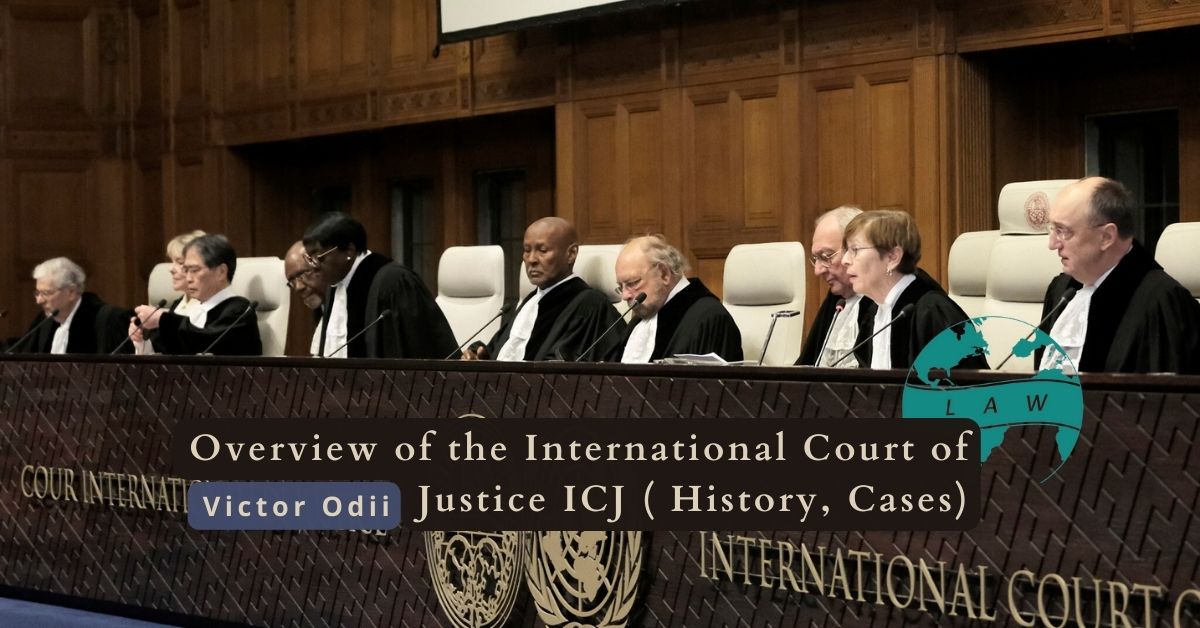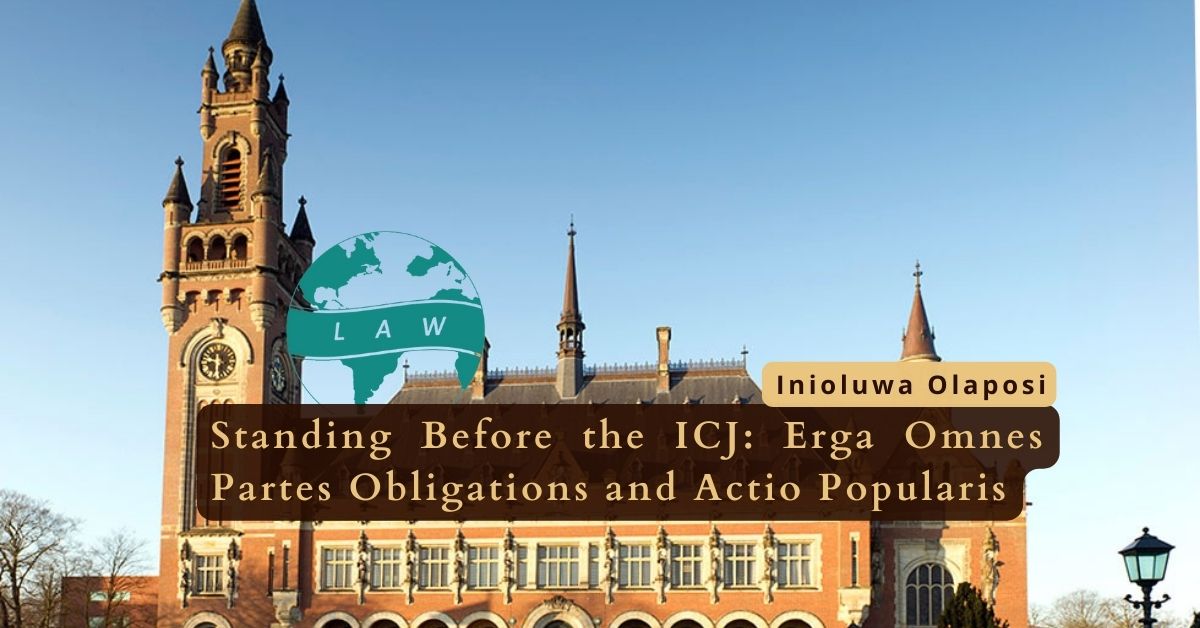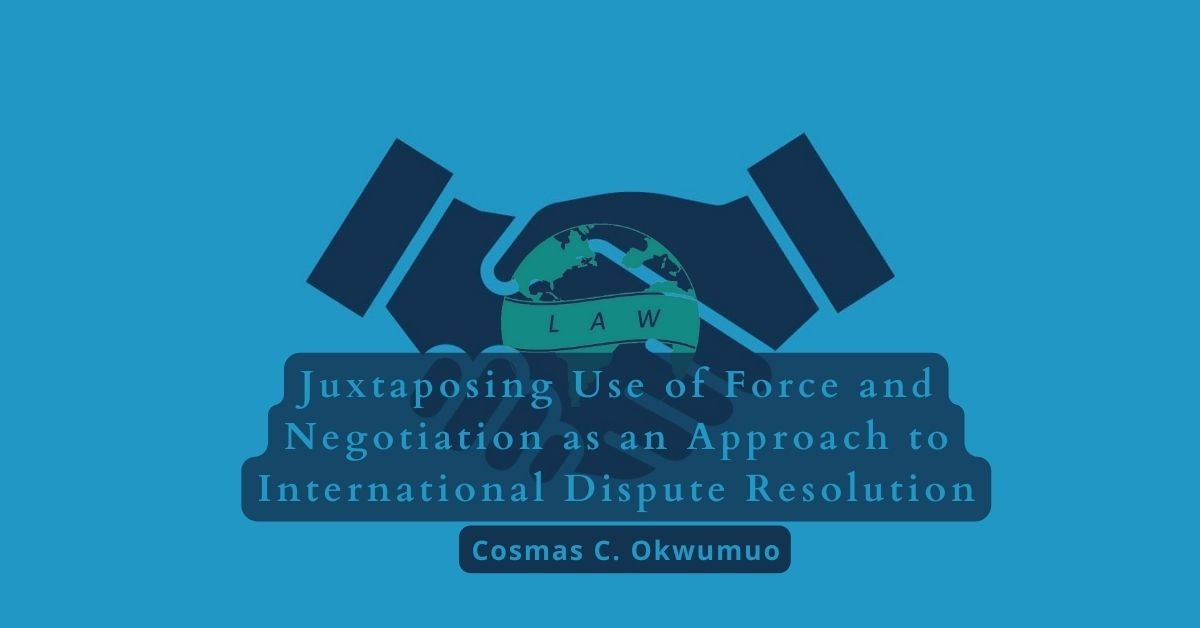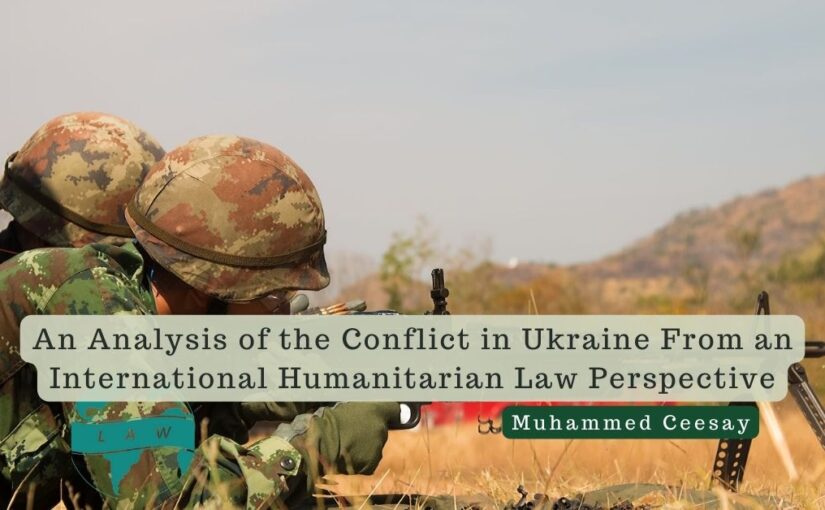Category: International Articles
-
Overview of the International Court of Justice The International Court of Justice (ICJ) is the principal judicial organ of United Nations (UN). Alternatively referred to as a “peace court”, the ICJ has played active roles in maintaining peace on international level, by settling disputes brought before it by member States, in accordance with international law,…
-
Standing Before the International Court of Justice: Erga Omnes Partes Obligations and Actio Popularis Legal standing, or locus standi, refers to the right or capacity to bring an action or to appear in a court.[1] It is a common thread of judicial requirement in both national and international law spanning across the legal practice of…
-
Juxtaposing Use of Force and Negotiation as an Approach to International Dispute Resolution Introduction Article 2(4) of the United Nations Charter 1945 prohibits the use of threat or force by states in international relations. This prohibition is, however, subject to an exception of self-defence in Article 51 of the Charter. Thus, states may resort to…
-
An Analysis of the Conflict in Ukraine From an International Humanitarian Law Perspective ABSTRACT The conflict in Ukraine has been raging for more than a year now, and it has resulted in deaths and injuries of thousands, destruction of critical infrastructure, and the halting fundamental services in Ukraine. It shall, therefore, be this paper’s object…
-
Legal Perspectives to the Gaza Hospital Attack The tragic attack on Ahli Arab Hospital, Gaza, on the 17th of October, 2023, allegedly by the Israeli airstrikes, which injured civilians causing extensive damage to the hospital facility highlights the intensity of the conflict between Palestine and Israel. Ahli Arab Hospital, which began operation since 1882, was…





